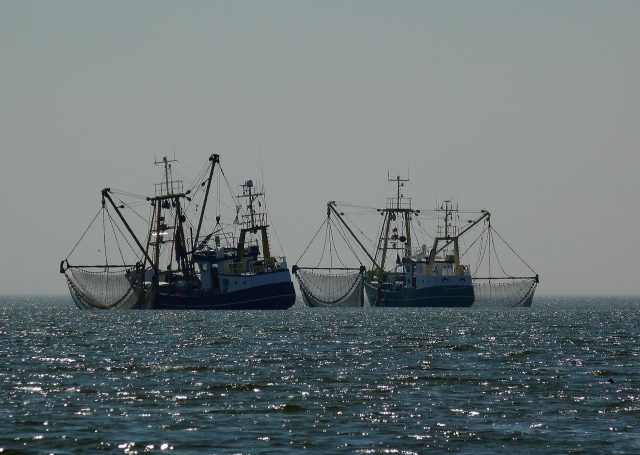
The Italian Government is the Only One in Europe to Officially Oppose the Limitation of Bottom Trawling, to Defend the Workers of the Sector
To defend a sustainable, competitive and resilient future for the sector, Italy voted against the new package of rules and limitations for fishing, voted by the European Council. The rotating president of the Council, Swedish minister Peter Kullgreen, confirms that 26 countries are in favour of the new rules, while Italy was the only nation to oppose it. The government has therefore decided to give in to the pressure of the fishermen and their protests against the planned gradual stop to bottom trawling which in some cases risks, in fact, the destruction of precious natural habitats on the seabed, increasing the risks of extinction for endangered species.
According to the Italian Government, the opposition to the new European rules, sanctioned unanimously, is above all dictated by the desire to defend a strategic sector for the country with commercial interests that must be defended as well. Italy is asking for less severity from Europe and a more in-depth analysis of all the possible consequences that could have repercussions on a sector already in crisis, such as fishing. The negative evaluation of the European Union proposal by the XIII Agriculture commission of the Chamber of Deputies is given by the need for a more accurate impact assessment, to highlight and evaluate the socio-economic and employment repercussions of the proposed rules, with the verification of the measures created to combat illegal and unregulated fishing which could cause environmental damage greater than those feared for traditional bottom trawling. The Italian representatives also expressed concern in relation to the provisions relating to the taxation of fossil fuels with particular attention to the evolution of the war in Ukraine.
The meeting of EU ministers, responsible for the matter, was in any case eagerly awaited precisely because of the age-old topics of discussion, especially in view of the imminent European elections. However, all governments are in total agreement on the more general principles of the reform, such as those relating to sustainability and resilience, aimed at making the fishing sector more competitive, but differences arose with reference to the methods of applying those principles. The document has technically already passed, but the opposition vote by Rome will weigh heavily when the text must be re-discussed by the European Parliament.
Many members of the Italian majority had already announced in recent weeks that they had heard the concerns of Italian fishermen and expressed solidarity with their fears. The new rules will favour, according to analysts, above all other European countries to the detriment of Italy which has always had a large induced related to the fishing sector. In the event that the text with the new rules passes, significant socio-economic and employment repercussions are expected, and the Italian government wants to push Europe to make all the necessary assessments.
Among the new rules there is also the one that provides for the installation of closed-circuit video cameras on boats without discrimination of size, in stark contrast with the confidentiality of the company and of the worker with additional costs and administrative burdens for Italian fishing vessels, already strongly tested from unfair foreign competition and general crisis. The matter should also be dealt with in the coming months in the plenary session in Strasbourg and Italy aims to weigh its concerns in the parliamentary phase of the approval process. The last hopes of the Italian fishing sector are linked to the ever-increasing weight that the Government is having in Europe and in the world in recent months.



 Subscribe
Subscribe